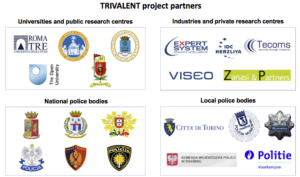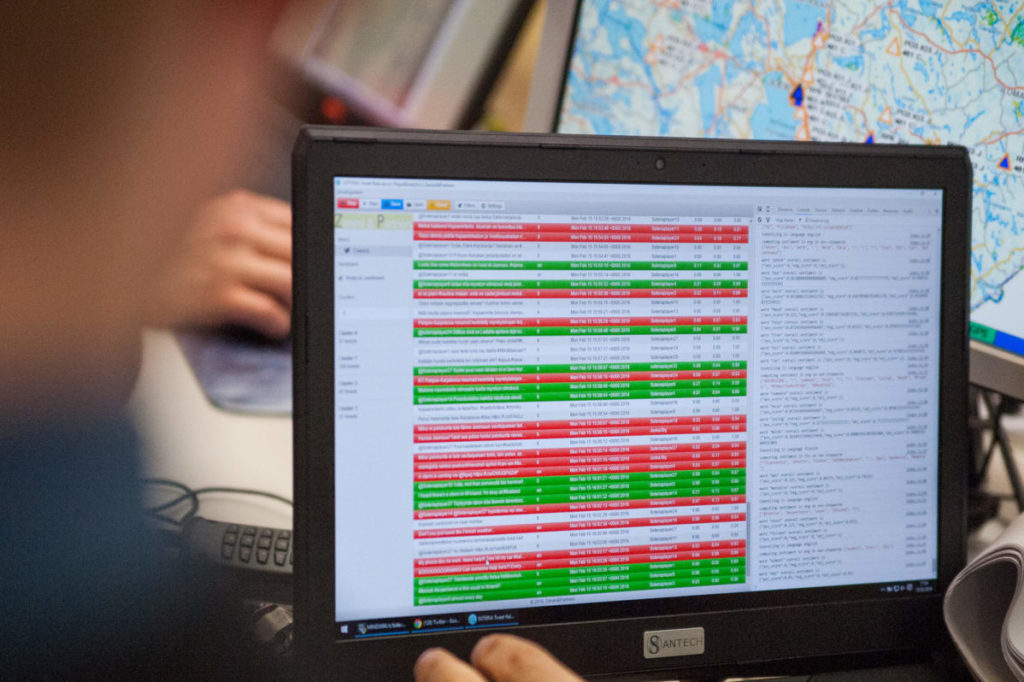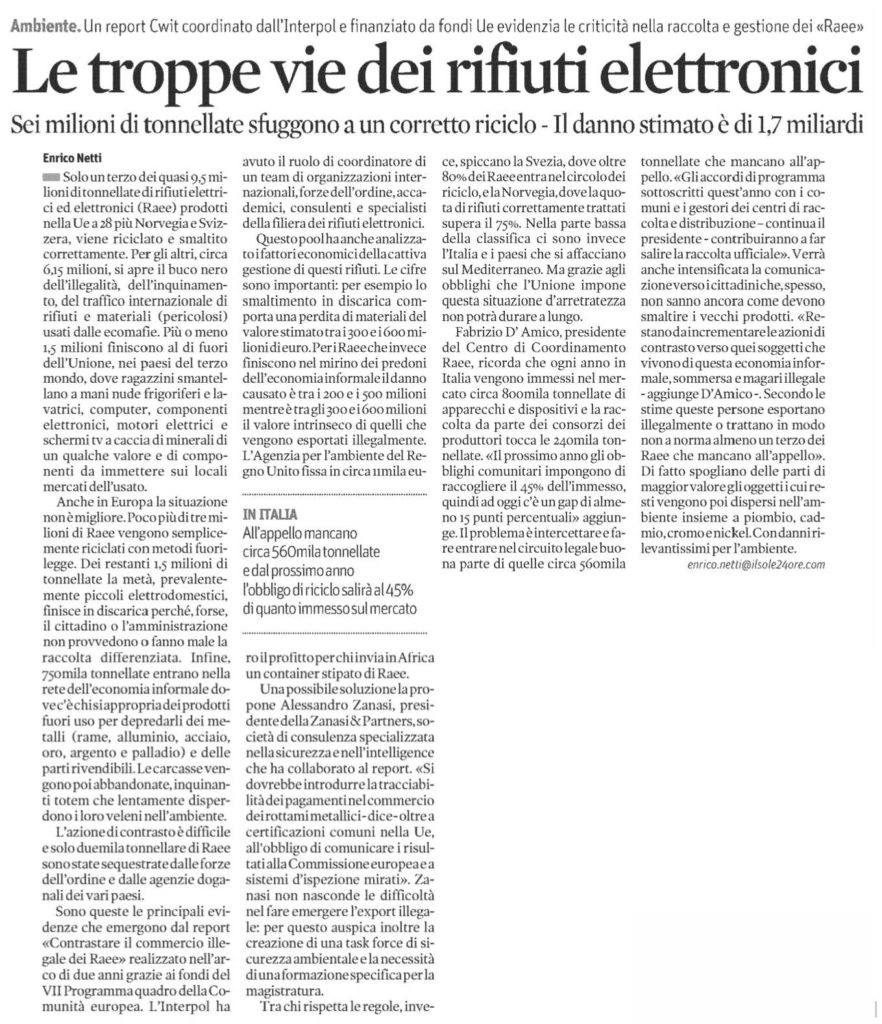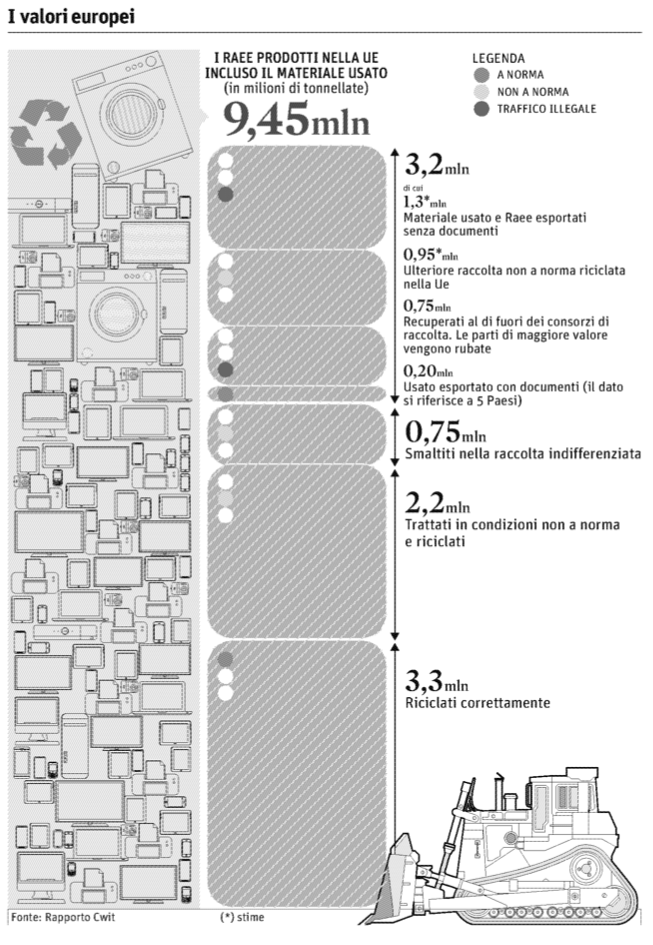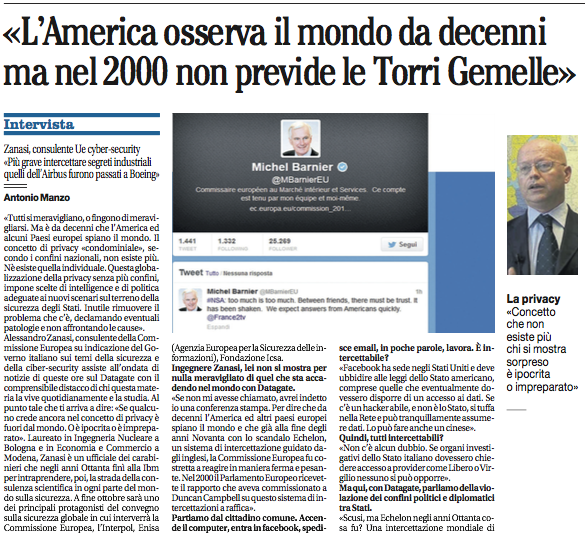Countering radicalisation: the European Commission funds the TRIVALENT research project
PRESS RELEASE
Countering radicalisation: the European Commission funds the TRIVALENT research project
Modena (MO), January 16th 2017 – The European Commission has officially approved the funding of the security research project TRIVALENT, aimed at countering radicalisation and violent extremism.
Threats to European security increasingly come from single individuals who reside in Member States’ territory, undertaking a path of radicalisation which ultimately leads to violent extremism. This is a very hot topic nowadays in the light of what happened only a few weeks ago at Berlin’s Christmas markets. The attacker, Anis Amri, was found to have radicalised during his previous time in Italian jail and to have turned from a petty criminal into a bloodthirsty assassin. As recently stated by Italian Prime Minister Paolo Gentiloni and Interior Minister Marco Minniti, counter-terrorism efforts must focus on prisons, as they provide fertile ground for the propagation of extremist ideologies and thus constitute a dangerous hotbed for security threats.
The research project TRIVALENT (Terrorism pReventIon Via rAdicaLisation countEr-NarraTive), funded by the European Commission under the Horizon 2020’s ‘Secure societies’ research programme, aims to identify, also by means of big data analytics and text mining techniques, the distinguishing features of radicalisation processes taking place in European countries. Particular attention will be devoted, during the project, to the analysis of radicalising narratives and their diffusion methods as a step towards the elaboration of different types of counter-measures, including the production of dedicated counter-narratives.
The project, which will last for 36 months and will rely on a budget of more than € 2.5 millions, will be coordinated by Università degli Studi Roma Tre and will see the participation of 20 public/private European entities as well as an Israeli research centre. A large number of law-enforcement agencies will take part in the project, distributed between national (Italian, Albanian, Polish and Latvian) and local (Turin, Madrid, Danzig, Voorkempen and Radom) bodies. The presence of law-enforcement agencies, including penitentiary police bodies, will allow the researchers to investigate radicalisation processes occurring within European prisons. This will help project partners gain a better understanding of the phenomenon and develop more effective tools for countering it compared to those available today.
Zanasi & Partners (Z&P) is a research, advisory and training company specialised in security and intelligence.
Z&P has participated in several international projects funded by the European Commission, aiming to define solutions to hot security issues: terrorism and surveillance, cyber-security, cyber-intelligence, big data analytics (data/text mining), social media monitoring, risk and threat assessment, border control.
Active in Europe, Middle-East and North Africa, its main clients include: European Space Agency (ESA), Italian Aerospace Research Centre (CIRA), European Union Agency for Network and Information Security (ENISA), European Border and Coast Guard Agency (FRONTEX), Siemens AG, Gruppo Editoriale L’Espresso, Booz&Co, Eurispes, ICSA Foundation, DigitPA, Ministry of Economy and Finance and Ministry of Economic Development of Italy, Ministry of Interior of Saudi Arabia, Ministry of Transport of Algeria, Ministry of Justice of Romania.
For further information, please visit: https://www.zanasi-alessandro.eu
COMUNICATO STAMPA
Contrasto alla radicalizzazione: la Commissione Europea finanzia il progetto di ricerca TRIVALENT
Modena (MO), 16 gennaio 2017 – la Commissione Europea ha ufficialmente approvato il finanziamento del progetto di ricerca in materia di sicurezza TRIVALENT, dedicato al contrasto alla radicalizzazione ed all’estremismo violento.
Sempre più spesso le minacce alla sicurezza del continente provengono da singoli individui, residenti sul territorio nazionale, che intraprendono un percorso di radicalizzazione che li conduce fino all’estremismo violento. La tematica risulta quanto mai attuale alla luce di quanto accaduto solo poche settimane fa ai mercatini di Natale di Berlino, con l’autore della strage, Anis Amri, radicalizzatosi durante la sua permanenza nelle carceri italiane e trasformatosi da delinquente di basso livello a sanguinario stragista. Come di recente espresso dal Presidente del Consiglio Paolo Gentiloni e dal Ministro dell’Interno Marco Minniti è proprio sulle carceri che occorre concentrarsi, in quanto luogo particolarmente favorevole al propagarsi di ideologie estremiste e quindi pericoloso focolaio di minacce per la sicurezza.
Il progetto TRIVALENT (Terrorism pReventIon Via rAdicaLisation countEr-NarraTive), finanziato dalla Commissione Europea mediante il programma di supporto alla ricerca in materia di sicurezza “Secure Societies” di Horizon 2020, si pone l’obiettivo di individuare, anche attraverso il ricorso a tecniche di big data analytics e text mining, quelli che sono gli elementi caratterizzanti del processo di radicalizzazione nei Paesi europei, con particolare attenzione rivolta alle narrative radicalizzanti ed alle loro modalità di diffusione, per poi elaborare misure di vario genere per contrastarlo, inclusa la produzione di apposite contro-narrative.
Il progetto, che avrà una durata di 36 mesi e potrà contare su un budget di oltre 2,5 milioni di euro, sarà coordinato dall’Università degli Studi Roma Tre e vedrà coinvolti complessivamente 20 enti pubblico/privati europei ed un centro di ricerca israeliano. Le forze dell’ordine vi sono rappresentate in gran numero, distribuite tra forze di polizia nazionali (polizia italiana, albanese, polacca e lettone; polizia penitenziaria italiana e portoghese) e locali (Torino, Madrid, Danzica, Voorkempen e Radom). Proprio la presenza di forze di polizia, incluse le polizie penitenziarie, consentirà ai ricercatori di investigare i processi di radicalizzazione che avvengono all’interno delle carceri europee al fine di migliorarne la comprensione e sviluppare strumenti di contrasto maggiormente efficaci rispetto a quelli oggi disponibili.
Zanasi & Partners (Z&P) è una società di ricerca, consulenza e formazione in materia di sicurezza ed intelligence.
Ha partecipato a decine di progetti internazionali finanziati dalla Commissione Europea, diretti a definire soluzioni ai temi caldi della sicurezza: terrorismo e sorveglianza, cyber-security, cyber-intelligence, Big Data analytics (data/text mining), social media monitoring, risk e threat assessment, border control.
Attiva in Europa, Medio Oriente e Nord Africa, tra i clienti più importanti: European Space Agency (ESA), Centro Italiano Ricerche Aerospaziali (CIRA), European Union Agency for Network and Information Security (ENISA), European Border and Coast Guard Agency (FRONTEX), Siemens AG, Gruppo Editoriale L’Espresso, Booz&Co, Eurispes, Fondazione ICSA, DigitPA, Ministero dell’Economia e delle Finanze e Ministero dello Sviluppo Economico italiani, Ministero dell’Interno saudita, Ministero dei Trasporti algerino, Ministero della Giustizia rumeno, Ufficio Federale per le Soluzioni Tecniche del governo belga.
Per ulteriori informazioni visitare: https://www.zanasi-alessandro.eu




